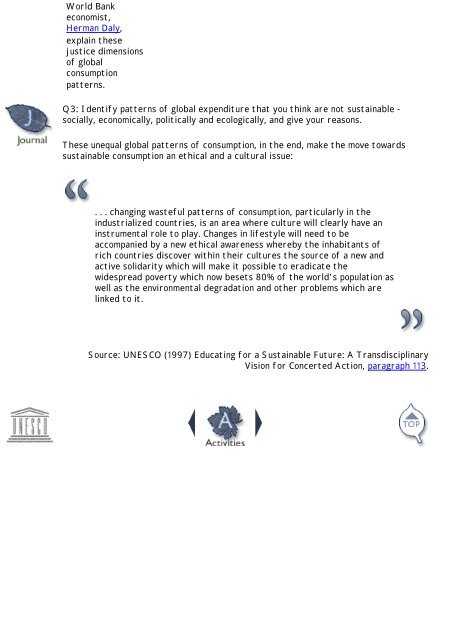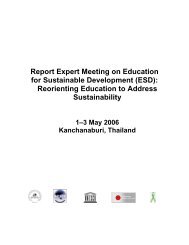Module 9 Consumer education - APCEIU
Module 9 Consumer education - APCEIU
Module 9 Consumer education - APCEIU
Create successful ePaper yourself
Turn your PDF publications into a flip-book with our unique Google optimized e-Paper software.
World Bank<br />
economist,<br />
Herman Daly,<br />
explain these<br />
justice dimensions<br />
of global<br />
consumption<br />
patterns.<br />
Q3: Identify patterns of global expenditure that you think are not sustainable -<br />
socially, economically, politically and ecologically, and give your reasons.<br />
These unequal global patterns of consumption, in the end, make the move towards<br />
sustainable consumption an ethical and a cultural issue:<br />
. . . changing wasteful patterns of consumption, particularly in the<br />
industrialized countries, is an area where culture will clearly have an<br />
instrumental role to play. Changes in lifestyle will need to be<br />
accompanied by a new ethical awareness whereby the inhabitants of<br />
rich countries discover within their cultures the source of a new and<br />
active solidarity which will make it possible to eradicate the<br />
widespread poverty which now besets 80% of the world's population as<br />
well as the environmental degradation and other problems which are<br />
linked to it.<br />
Source: UNESCO (1997) Educating for a Sustainable Future: A Transdisciplinary<br />
Vision for Concerted Action, paragraph 113.








